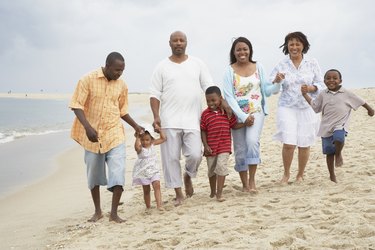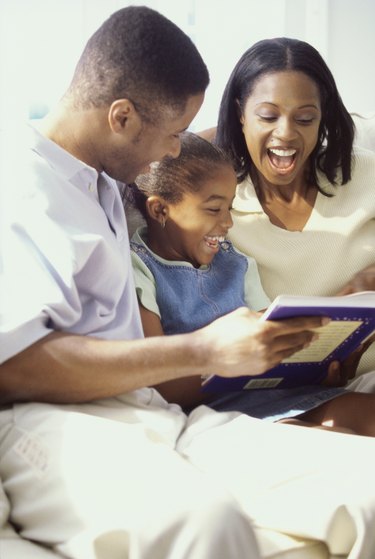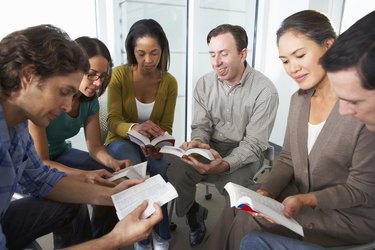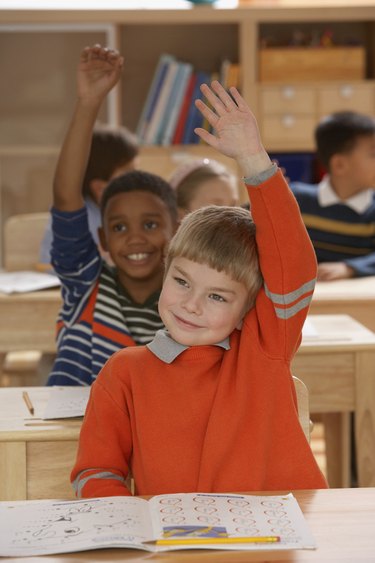
Black History Month began in 1979 as a way of honoring the numerous contributions black individuals have made to the U.S. Taking place each February, this event is an opportunity for families, churches and communities to raise awareness of the ways in which blacks have been -- and in some places continue to be -- oppressed, while acknowledging the vital role they've played in literature, sports, religion, music, science and other areas.
Family Ideas
Video of the Day

Incorporate African-American culture into your family time. Read aloud from the works of black poets including Sonia Sanchez, Gwendolyn Brooks and Langston Hughes, or compile a song playlist featuring the likes of Louis Armstrong, the Supremes, the Four Tops and Destiny's Child. Discuss the influence black artists, entertainers and inventors have had upon American culture, despite the fact that many were accused of not being American. Have your kids choose one historic figure and write a poem discussing her courage in the face of adversity.
Video of the Day
Church Ideas

Organize a church book club to open a discussion about injustices against black people. Read slave narratives detailing black oppression or read and discuss a book by a contemporary black author such as James Cone, who in "The Cross and the Lynching Tree" makes the provocative claim that black lynchings in the 19th and 20th centuries were similar to the crucifixions carried out by the Romans. Discuss the large number of Southern preachers who defended slavery using the Bible and how their methods of interpretation might have led them to support an unjust system.
School Ideas

Design curriculum that explains the historic injustices blacks faced in the struggle for civil rights in the decades preceding the Civil Rights Movement. Using the murder of young men such as Emmett Till as a focal point, describe how blacks could be beaten, mutilated or lynched for the slightest of offenses by men who thought they were protecting society. Note how Martin Luther King Jr. went to jail and how his home was bombed because he was considered a dangerous man, and how he responded peacefully to his attackers and urged his supporters not to seek vengeance. Ask each student to give a presentation describing the life and achievements of a figure in the Civil Rights Movement.
Municipal and Community Ideas
Although the Civil Rights Movement was instrumental in ending voting discrimination, many black people still deal with cultural prejudice. Stage a march in your community addressing ways in which blacks are stereotyped -- for example, the stereotype of the "angry black man."